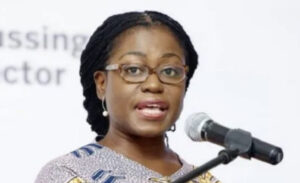
The Second Deputy Governor of the Bank of Ghana (BoG), Elsie Addo Awadzi, has called for greater efforts to promote gender-inclusive finance, urging more women to actively participate in Ghana’s financial system.
Ms Awadzi emphasised that beyond encouraging women to open bank accounts, there should be incentives for them to use these accounts to grow their businesses.
Speaking as Chair of the Alliance for Financial Inclusion’s (AFI) Gender Inclusive Finance Committee, she highlighted the need for more targeted financial policies that enable women to access affordable loans and other financial services.
“A lot of progress has been made in getting women to open accounts,” she noted.
“Now, we need more action in promoting women’s effective usage of these accounts—whether traditional bank accounts, electronic wallets, or mobile wallets. We want to see more women saving, building financial histories, and accessing credit to expand their businesses, so they can play an active role in our economies.”
Ms Awadzi stressed the importance of ensuring that women understand the benefits of these financial services, adding that their use could make them more resilient to economic shocks, including those caused by climate change and pandemics.
She expressed optimism that the recent launch of the Alliance for Financial Inclusion’s Gender Inclusive Policy Model would accelerate progress.
“This policy model provides a useful framework to guide regulators and policymakers in advancing women’s financial inclusion and narrowing the gender gap,” she said.
While significant strides have been made in empowering women economically, challenges remain.
The gender gap in access to financial services has shrunk, standing at 6% compared to 9% in 2011.
However, despite this progress, the full potential of women’s participation in the financial sector remains untapped.
Ms Awadzi concluded by urging continued efforts to ensure that women not only open accounts but also make full use of the financial opportunities available to them, enabling greater economic resilience and empowerment.